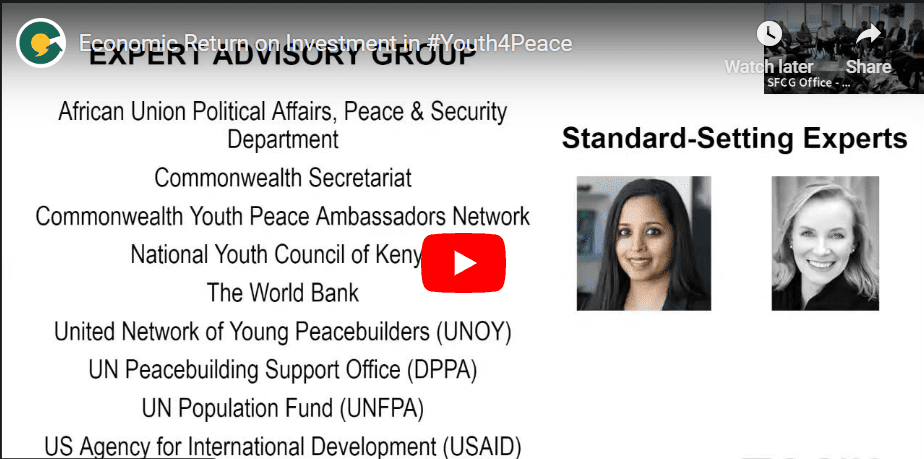Event recording
The slides are available for download on this page.
Event information
Search for Common Ground and the University of Southern California (USC) in partnership with USAID, the National Youth Council of Kenya, and the Commonwealth Youth Peace Ambassadors Network are pleased to present the launch of the Social and Economic Return on #Youth4Peace Programs, a pioneering body of evidence on the value and Social Return on Investment (SROI) of peacebuilding programs.
The project, funded and supported by USAID, fills a critical gap in the peacebuilding field by providing an in-depth view of the impacts of youth-led and youth-supporting peacebuilding interventions, including their social and economic value to key stakeholders such as youth, their families, communities, state actors, and the private sector.
Key findings highlight that for every $1 USD there is a $5-10 USD return on that investment to youth, community members, State institutions, and the private sector. This is the first time such a rigorous and disaggregated study has been done to understand the social and economic return on investment of youth peacebuilding programs to the different stakeholder groups.
This evidence presents a snapshot of the social and economic value of peacebuilding interventions, including what matters most to key stakeholders impacted by projects and programs, offering critical insights and lessons for the future.
This interactive hybrid event featured lively conversations from leaders in peacebuilding, including at the global, national, and local levels, as well as scholars and academics, about this work’s potential. This event marks the beginning of a movement that will provide a framework for measuring peace that is grounded in 3 pillars that include (1) capturing local lived experience & expertise, (2) creating a set of aligned measures that can be analyzed across contexts and (3) encourage expert observation and reflection to capture intended & unintended effects. They will be complemented by a set of common themes that include physical violence; personal agency; polarization; institutional legitimacy; and resource investments.

You must be logged in in order to leave a comment